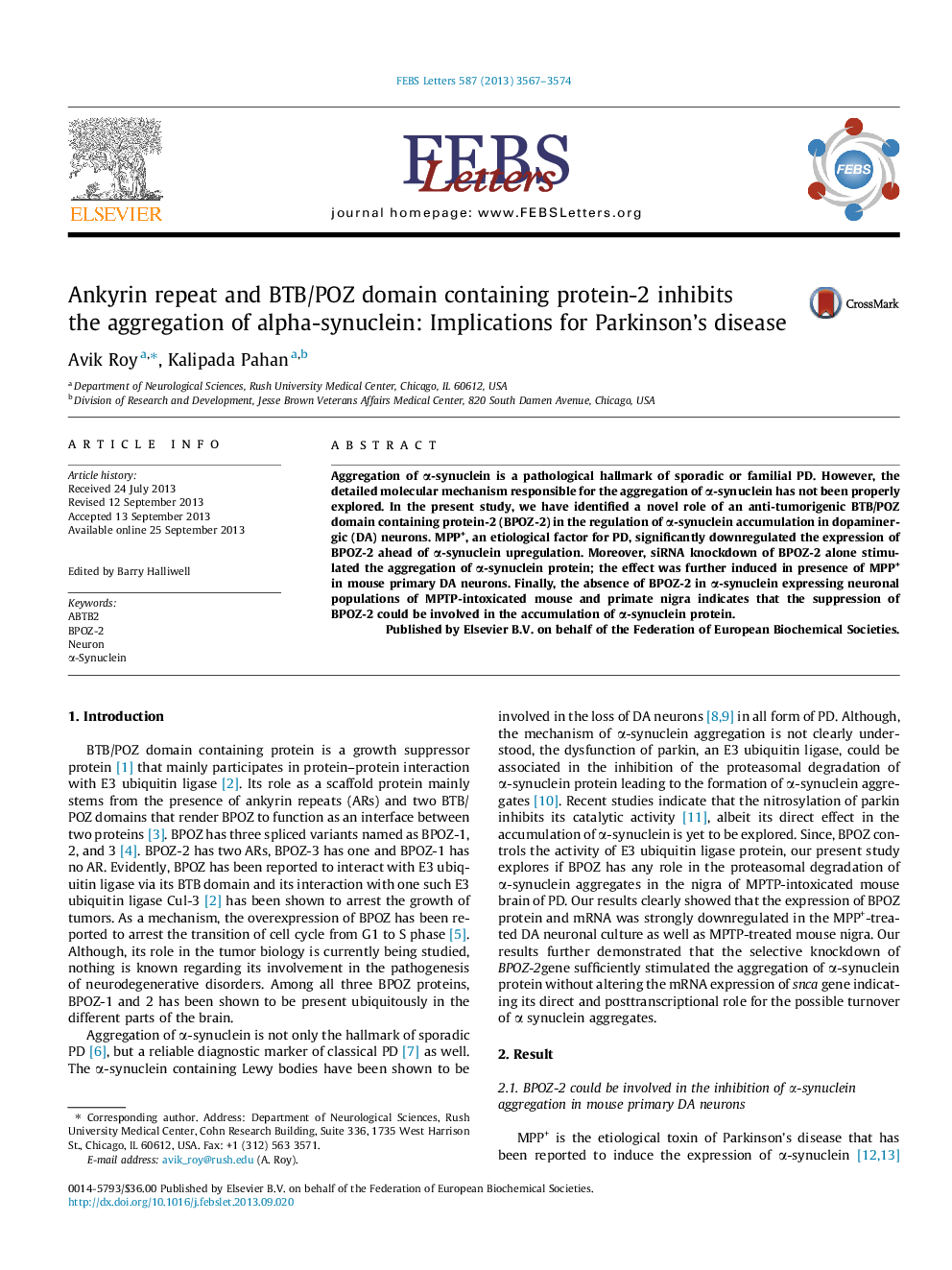| Article ID | Journal | Published Year | Pages | File Type |
|---|---|---|---|---|
| 10871084 | FEBS Letters | 2013 | 8 Pages |
Abstract
Aggregation of α-synuclein is a pathological hallmark of sporadic or familial PD. However, the detailed molecular mechanism responsible for the aggregation of α-synuclein has not been properly explored. In the present study, we have identified a novel role of an anti-tumorigenic BTB/POZ domain containing protein-2 (BPOZ-2) in the regulation of α-synuclein accumulation in dopaminergic (DA) neurons. MPP+, an etiological factor for PD, significantly downregulated the expression of BPOZ-2 ahead of α-synuclein upregulation. Moreover, siRNA knockdown of BPOZ-2 alone stimulated the aggregation of α-synuclein protein; the effect was further induced in presence of MPP+ in mouse primary DA neurons. Finally, the absence of BPOZ-2 in α-synuclein expressing neuronal populations of MPTP-intoxicated mouse and primate nigra indicates that the suppression of BPOZ-2 could be involved in the accumulation of α-synuclein protein.
Keywords
Related Topics
Life Sciences
Agricultural and Biological Sciences
Plant Science
Authors
Avik Roy, Kalipada Pahan,
